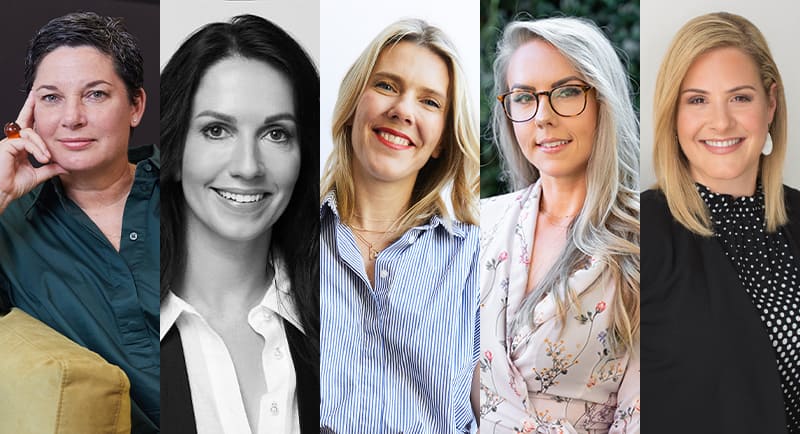March 8th marks International Women’s Day (IWD), a day dedicated to recognising the achievements of women across the globe. As well as celebrating, the day also represents an opportunity to reflect on how women are still at a global disadvantage in many ways, and highlights ways that equality can be achieved for all women.
This year’s theme is #EmbraceEquity, aiming to spark conversations about why equal opportunities aren’t enough, and how when people start from different places, true inclusion requires equitable action.
To get their thoughts on the day, Mediaweek spoke to Sarah Keith (group managing director, Involved Media/Active International Australia), Sarah O’Carroll (editor-in-chief, Forbes Australia), Katie Palmer-Rose (managing director, Social Soup), Lizi Pritchard (director, Nature Sydney), and Jodi Rosenthal (head of people & culture, QMS).
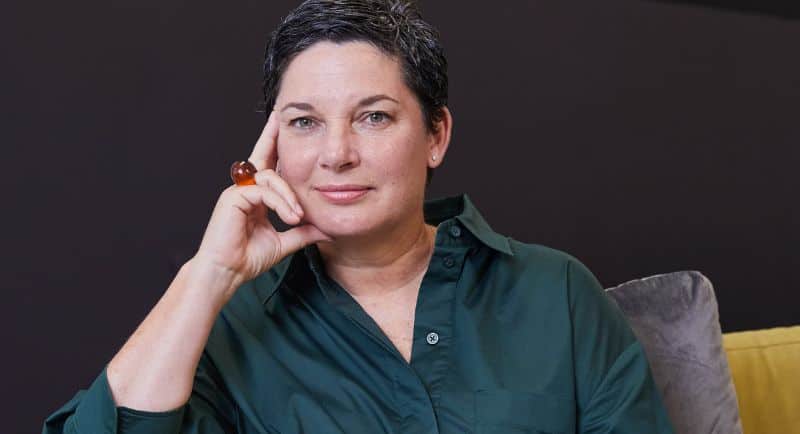
Sarah Keith
Could you tell me a bit about what you do in your role?
Keith: “The #1 thing I do as the Group MD of Active and Involved is set the strategic direction of our business and then ensure that the team have what they need to deliver for our clients. To do this, clear communication and accountability are key along with all the ‘basics’ around business plans, personal development plans and a company goal. The only thing we know about tomorrow is that it will be different to today, so getting the team and our clients comfortable with change is a major part of my role.”
O’Carroll: “I lead the team at Forbes Australia and oversee the editorial direction across the magazine, digital, social, video and events. Every day is different. Each day brings new challenges. It’s been a fun ride since we launched six months ago.”
Palmer-Rose: “I lead Social Soup, which mainly involves setting strategic and business goals and then engaging my leadership team to build how those goals are prioritised and implemented throughout the business. Further to that, I pioneer and champion the influence space. This is a space where, in almost 16 years – long before ‘the influencer’ arrived – it is all about people and it still is.
“Truly, I believe my role is to provide the guardrails, the guidance and support and get out of the way to let people be their extraordinary selves.”
Pritchard: “The core part of my role at Nature sees me helping clients solve their key business issues while also leading a fabulous team of consultants. Beyond that, I co-lead our B Corp Committee which is in place to make sure we dedicate the right effort and resources into having a positive impact, not only for our clients and our team, but also for the community, our society and the planet. Having been with the business in Sydney since its inception in 2019 means I’ve done, and continue to do, a lot of rolling up of my sleeves (both metaphorical and real) to see things done and grow the business and team to where we are today.”
Rosenthal: “As the head of people & culture at QMS, I like to say that I look after all the ‘Ps’: people, processes, policies, protocols, psychological safety and (occasionally) the parties! My role oversees all aspects of the P&C function including recruitment, learning and development, diversity and inclusion, policy development, employee relations, employee engagement, performance management, health and wellbeing and coaching – to name a few.”
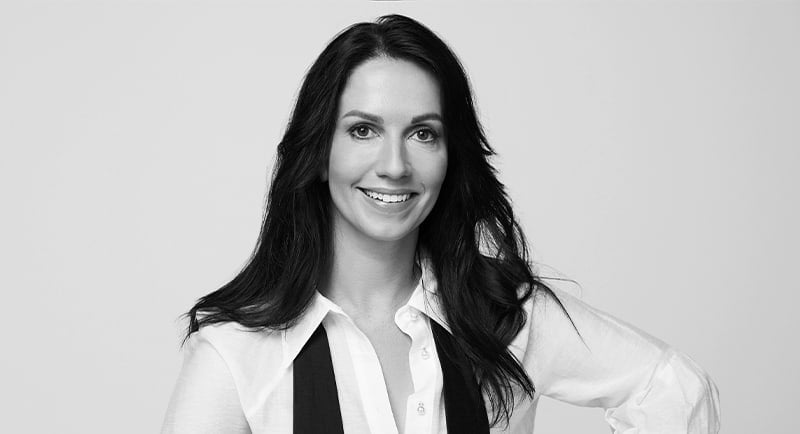
Sarah O’Carroll
In your experience, how has the industry changed for women in the time you’ve been working (if at all)?
Keith: “There have been measurable improvements around the pay gap, opportunities and flexible working, both in the UK and Australia [Keith started her career in the UK]. It’s worth noting that the two largest commercial networks in the UK, Channel 4 and ITV, are currently lead by women, Alex Mahon and Carolyn McCall. If you look the leading industry bosses here in Australia, Think TV, IAB and MFA all have women in the lead. This means that men and women starting in the industry today see women in senior, agenda-setting roles which just wasn’t the case in the 1990s.”
O’Carroll: “In a newsroom where I once worked, some of the female journalists were referred to as ‘the mums’ because they left early for pickups or worked a four-day week. It had negative connotations and was viewed as a disadvantage. That’s changed and the pandemic accelerated that change.
“Looking back, the obsession with presenteeism was absurd. And it was women, especially women with children, who bore the brunt of that lack of flexibility. That’s just one example of many changes I’ve seen over the past 15 years. Additionally, many of the behaviours that were once casually accepted are no longer tolerated.”
Palmer-Rose: “There are a lot of positives from my perspective, and a lot more female leaders and female-led workplaces in recent years. A link I likely draw to this is the step-change brought about by Covid and increased flexibility in the workplace that has enabled capable, talented women to take on big leadership roles, while still being able to actively engage with their lives and families; it’s an understanding that we are all whole people and that the experiences we have outside of work and the time to explore that makes us better and more motivated while at work.
“Perhaps one of the biggest changes I’ve also seen has been that we no longer need to invoke more masculine traits to be seen as a leader. Women in leadership positions, like Jacinda Ardern, have proven that. Ultimately, being your authentic self, being clear, collaborative and decisive aren’t gendered traits, but instead are traits that lead to success.”
Pritchard: “I’ve always found research and insights to be a much more welcoming industry for women, especially compared to the finance industry, which is where I started my career after my first stint at Uni. Over time, I’ve been really pleased to see improvements in gender diversity in boardrooms and parental leave policies. At Nature, we implemented a great parental leave policy in 2021, offering six months paid leave parental leave, which represents one of the many great steps forward.
“But overall, there’s still work to be done! Gender pay gaps still exist in our industry, C-suite representation for women is still extremely low, and insights into other areas of ad land show that sexual harassment is, disappointingly, still an issue. I believe we need to continuously put in the effort to keep on evolving and doing better.”
Rosenthal: “The industry has definitely (and thankfully!) changed since I joined my first media publisher in 2005, with shifts including increased representation of women in leadership, a more inclusive and respectful culture, improved opportunities for part-time and job-share roles and a greater awareness of what needs to be done to close the gender pay gap. However, the biggest change I have experienced is a lack of fear in addressing inequalities. Women’s voices can now be heard loudly, frequently and most importantly, collectively. Long may it continue!”
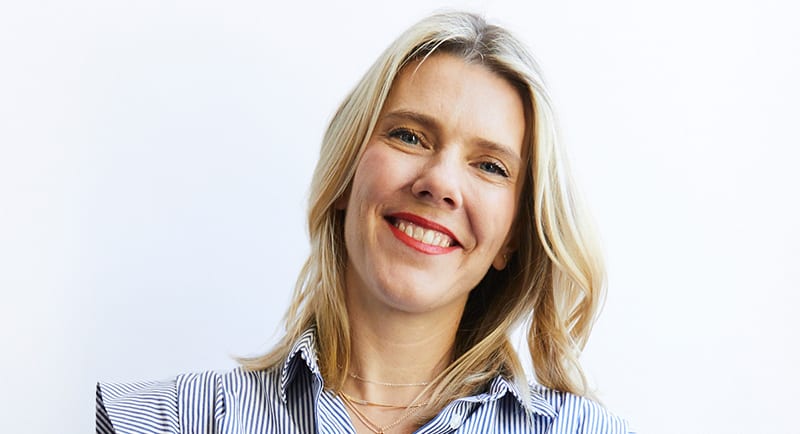
Katie Palmer-Rose
What do you think are the biggest hurdles for women entering the industry today?
Keith: “The hurdles in our industry are the same as any other: what are my longer term opportunities, is there an opportunity for ongoing skills development and does my organisation have a purpose that aligns with my values?”
O’Carroll: “There’ll always be hurdles and challenges. I still see a significant challenge for women of colour and ethnic minorities in the industry. They often face unconscious bias in majority-white newsrooms. A quick glance around any newsroom in Australia highlights the lack of diversity in positions of authority. People tend to hire those who look like them, and this perpetuates the problem. However, media companies are increasingly showing their commitment to diversity of voices in newsrooms, pages of magazines and on panels, which is a positive sign.
“Another hurdle that has emerged since I started out as a journalist is the trolls. Once upon a time, all journalists had to contend with were angry letters from readers; now they need thick skin to handle the sea of nasty trolls who have nothing better to do than attack. While it’s a problem everyone faces, women receive more online abuse, harassment and sexualised attacks and threats.
“New challenges arise every year. Even the word ‘woman’ is gradually being pushed out of our lexicon, which is ridiculous. We need to continue to fight for equality and inclusion in all aspects of the industry, and that includes language use.”
Palmer-Rose: “To answer this question, I looked to my team. At Social Soup there are 23 women out of a team of 27, and five of those have entered the industry in the past two years. When asked, they were overwhelmingly positive about more women coming into our largely female-dominated industry because they have witnessed first-hand the fruits of more quality, female leaders.”
Pritchard: “Coming back to my point about C-suite representation still being low, I saw a stat recently that said 84% of CEOs and 60% of exec-level professionals in our industry are male. So, finding senior and visible female role models or supporters who’ll fight in your corner internally are hard to come by in many businesses, which can be a real barrier to career advancement. We need to be intentional about appointing highly qualified women to senior roles who can serve as inspiration and champion others in the industry.”
Rosenthal: “I’d like to think that there wouldn’t be too many barriers for women looking to enter the industry, but if I had to pick a couple it would probably be a sense of apprehension based on the industry’s historical reputation and perhaps a lack of opportunities in traditionally male-dominated areas such as technology, operations, IT, software development, et al.
“Personally, I think the biggest hurdle is actually retaining women in the industry. We have seen a sizeable exodus of highly experienced women in the past few years, a casualty of taking on the bulk of unpaid care during the pandemic resulting in total burnout. We need to focus on engaging and enabling our talented women to do what they need to do and share their expertise with the next generation.”
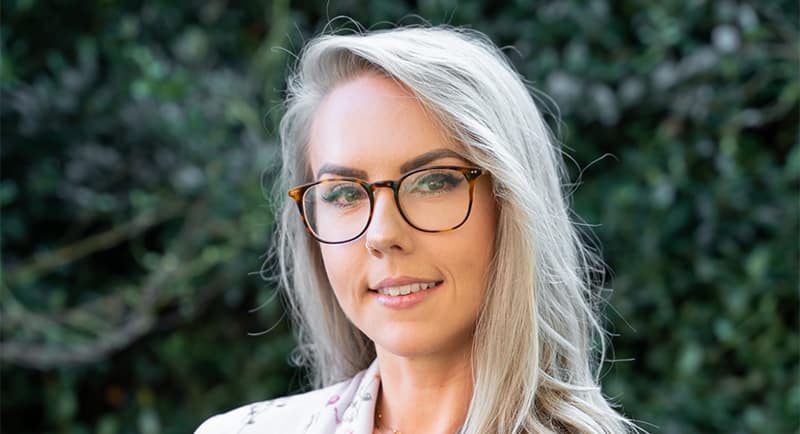
Lizi Pritchard
What does IWD mean to you?
Keith: “It’s an opportunity to celebrate the social, economic, cultural and political achievements of women globally, but it also marks the ongoing call to action for accelerating gender parity. Its an opportunity for us to recognise that the rights we have in Australia still aren’t afforded to all women globally. It’s also an opportunity for us to reflect and consider that true equity means creating an inclusive world.”
O’Carroll: “My feelings around International Women’s Day are somewhat conflicted, I must say. For many years, it has bugged me that so many corporations with all-male boards jump on the IWD bandwagon for one day, without showing any real commitment to gender equality throughout the rest of the year. All these themes such as #BreaktheBias and #EmbraceEquity often seem to distract from the real issues that women face, such as domestic violence (as Angela Priestley from Women’s Agenda highlighted in a recent article).
“However, as women are losing their rights all over the world – from reproductive rights in the US to being arrested, tortured and imprisoned in Iran – IWD is more important than ever. It needs to be celebrated and recognised in a genuine way, with a commitment to taking real action for gender equality.
“The United Nations’ theme for IWD 2023 is ‘DigitALL: Innovation and technology for gender equality’, which really resonates with me and the work we’re doing at Forbes Australia. Our future is digital, and it is crucial that we address the ways in which technology can reinforce huge inequalities in the digital realm. It’s important to support those who are fighting to have their voices heard right now and make a genuine effort towards gender equality, not just virtue signalling for one day.”
Palmer-Rose: “Overwhelmingly, it is a moment to take stock and feel a sense of admiration for all the women who have – and will continue to – shape our world and our future.
“It means leaning into and appreciating what women bring: from our feminine qualities to our strength and ability to move through the world competently and with grace.
“Lastly, it is a chance to celebrate the amazing emerging women around me and raise them up. We are wonderful and the connection, inclusion and support we can show each other can really shape the future.”
Pritchard: “It’s a time to not only celebrate what has been achieved in terms of equality so far, but also to amplify our voices and give attention to the issues which haven’t been resolved yet, so we can focus our efforts for the coming year ahead and beyond.”
Rosenthal: “International Women’s Day is an opportunity to reflect on how I have used my knowledge, agency, and influence to support, mentor, sponsor and promote women – both personally and professionally – and importantly, what I need to do or change to continue doing my part.
“Gender equality is not a single issue, it is made up of a complex number of issues (pay equity, education access, education bias, healthcare, poverty, cultural practices representation at a policy level, gender-based violence to name a few) that individually require immense focus, resources, and investment. It can feel overwhelming, but the key is to start somewhere and do something. Just one meaningful thing. If we’re all doing that, the momentum will never end.”
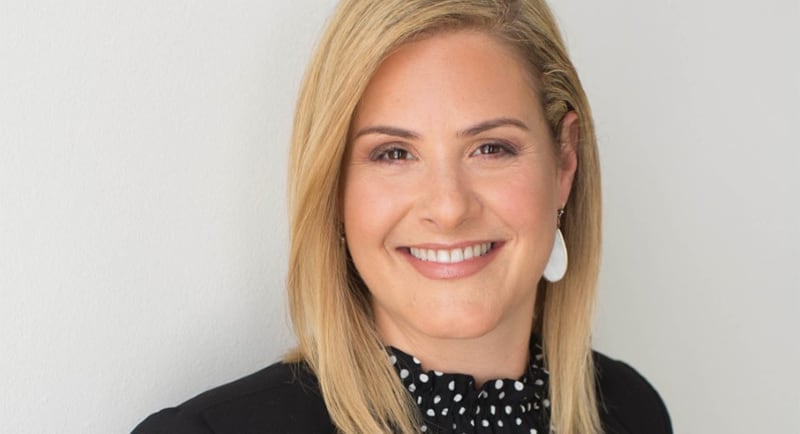
Jodi Rosenthal
Looking ahead, what does the rest of 2023 look like for you and your team?
Keith: “More than ever, this year is the time for us to ensure that our business continues to build on our strong foundations of environmental, social and corporate governance. At Active and Involved, we are focused on growing a truly sustainable business. It’s a lofty goal, but it’s an urgent one, to ensure that we are fulfilling current needs without compromising the future while ensuring a balance between economic growth, environmental care and social well-being.”
O’Carroll: “The calendar is action-packed! The Forbes Australia Women’s Summit on 22 March is just around the corner, followed by the Forbes Australia Future of Wealth Summit in June, our second Business Summit in August, and the Forbes Australia 30 Under 30 festival later in the year. In addition to these major events, we also have a bi-monthly flagship magazine and daily digital and social media content, as well as intimate salon-style gatherings. As we approach our six-month mark since launch, my mission for this year is to consistently refine and review our editorial strategy, listen to our audience, and build strong connections with our growing Forbes community. And of course, as always, have fun.”
Palmer-Rose: “It’s really about setting and sticking to our goals and objectives. Our main goal is to be the undisputed leaders in influence and our platform to achieve this is to showcase what good influence looks like – which is what we’re doing day in, day out! We want to – and we are – shifting the narrative from influencer to influence. Often, this means providing the safety to go big and fail, to pioneer and be brave for our team.”
Pritchard: “We’ve got an exciting year ahead as a team. Across the wider Nature business, we’ve got some really exciting and impactful projects lined up, a calendar of great, diverse initiatives and events in place, and we’ve just moved into a new Sydney office, so I’m really excited to see what we can do and achieve together in our new space.”
Rosenthal: “Very exciting and super productive! We had a huge 2022 with a significant uplift in employee engagement driven by a robust program of initiatives, learning and development opportunities and a strong focus on nurturing – and evolving – our workplace culture. We are looking forward to building on what we have achieved with a specific focus on areas such as enablement, feedback and recognition, learning and development and diversity and inclusion.
“We are all lucky to truly love what we do which makes every day an engaging and enjoyable experience. Shout out to my amazing team (hey Vida and Bella!) and all the other women making a difference in their organisations.”
–
Top Image: Sarah Keith, Sarah O’Carroll, Katie Palmer-Rose, Lizi Pritchard, and Jodi Rosenthal
